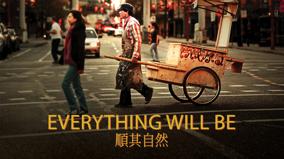Sacrée montagne - Les pique-niques du lac des Castors
2010
5 min
Coming soon
Ils sont originaires d’Algérie, du Cameroun, d’Iran, du Liban, de la Turquie. Ils résident au Québec depuis deux mois, deux ans ou douze ans. Au lac des castors, au-dessus des BBQ, ils se réunissent pour un repas familial, en pleine nature.

Details
Ils sont originaires d’Algérie, du Cameroun, d’Iran, du Liban, de la Turquie. Ils résident au Québec depuis deux mois, deux ans ou douze ans. Au lac des castors, au-dessus des BBQ, ils se réunissent pour un repas familial, en pleine nature.
-
directionHélène de BillyGilbert Duclos
-
NonePhilippe ArchontakisFrancis GélinasJean-François GauthierHugues SweeneyPierre FerlatteDanielle RaymondMartine ForgetIsabelle PainchaudMathieu SheehySerge BoivinDenis PilonPierre DupontGeoffrey MitchellÉmilie Nguyen Ngoc
-
art directionPhilippe Archontakis
-
conceptionNicolas S. RoyHugues Sweeney
-
animationNicolas S. Roy
-
programmingNicolas S. Roy
-
musicVincent Letellier
-
sound designVincent Letellier
-
location soundHélène de BillyKy Vy Le Duc
-
video editingGilbert DuclosKy Vy Le DucEllen Tang
-
sound editingDaniel Toussaint
-
administratorManon Provencher
-
administrative assistantLise Lévesque
-
production coordinatorHélène RegimbalDominique Brunet
-
Web coordinatorCaroline Fournier
-
project leaderDominique Willieme
-
interactivity officerAnne-Marie Lavigne
-
edimasterMartin Viau
-
information technologiesPierre MétrasSergiu Raul SuciuBruno Gervasi
-
technical coordinatorRichard Cliche
-
digital processing centreBrigitte SénéchalAndré Solat
-
online marketingMatthieu StréliskiJulie MatlinStéphane Bousquet
-
platform developmentJoël PomerleauJean-François Côté
-
marketing officerJenny ThibaultSophie Thouin
-
press relationsMarie-Claude Lamoureux
-
legal servicesCaroline TrudeauSaskia LatendressePeter Kallianiotis
















